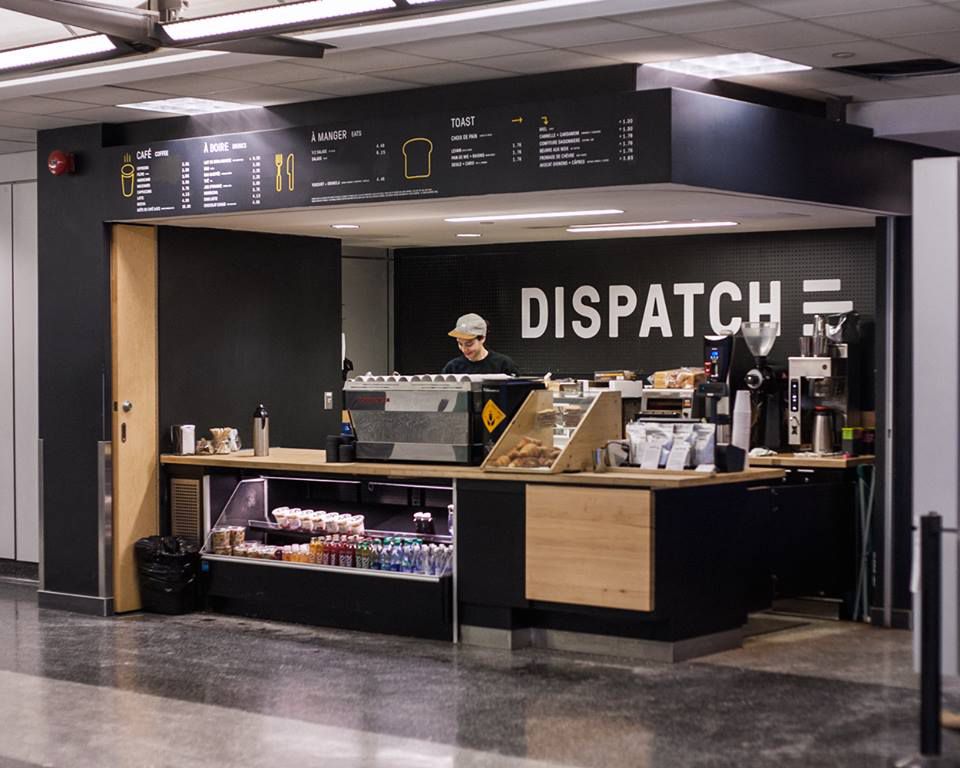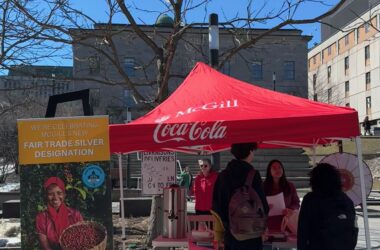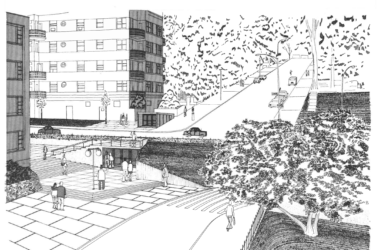For students still frequenting campus, former food haunts have stood conspicuously empty over the remote semester. Among them was Dispatch Café. Located in the McConnell Engineering building, Dispatch opened in 2014 as the brand’s first brick-and-mortar location. On Nov. 11, Dispatch Café welcomed students and faculty for the first time since the suspension of on-campus activity in late March.
“We launched [without] toast in week [one] in order to run lean and curb our waste while we observed what new traffic patterns will be,” founder Chrissy Durcak wrote in an email to The McGill Tribune. “Thanks to the support of [the] McGill community that came out in our first week [we brought back toast in the second week.]”
For many first year students, the café is not only close to residences but also serves as a great option for coffee and meals on the residence meal plan: The McConnell Engineering location is the only Dispatch Café in Montreal to take OneCard as a payment method. This feature, along with its prime location, makes the café a beloved spot for students.
Dispatch is also an example of the city’s vibrant local coffee roasting scene, located right on campus. Montreal is home to many micro and nano coffee roasters that purchase beans at the source and roast locally. Durcak identifies Dispatch within the third wave of the coffee movement. The term “third wave coffee” was coined by Trish Rothgeb in 2003, and defines waves of coffee over time, with each wave marking an innovation on the last. The first wave came in the early ‘60s, as coffee became widely accessible and mass-produced by brands like Folger’s and Maxwell House. Large specialty coffee companies like Starbucks were emblematic of the second wave, which elevated coffee from utility to luxury through a focus on the beans’ origins and novel espresso preparations. The third wave defines modern coffee shops like Dispatch, that seek to create artisan, aesthetically beautiful, and traceable coffee experiences.
“Dispatch was Montreal’s first cold-brew delivery service (by bicycle), and then its first coffee truck,” Durcak wrote. “Since then, Dispatch has opened three cafés across Montreal.”
Like most third wave roasters, Dispatch is committed to lessening its environmental impacts through their sourcing and business practices.
“At Dispatch, we prioritize buying coffee from regions and farmers that lack the most infrastructure[,] resources, and access to market to encourage the sustainable development of their businesses,” Durcak wrote. “Many of the coffees we serve on campus are from repeat relationships—for example, we are about to launch one coffee from a farm in Ethiopia called Kossa Geshe that we have purchased for four years now.”
To reduce its environmental impact, Dispatch Café uses biodegradable packing for retail coffee bags, composts coffee grinds and food waste, incentivises customers to bring and buy reusable mugs, and roasts its coffee with an afterburner to emit less pollution into the air.
In the interest of transparency, all Dispatch coffee is traceable online and, as of September 2020, through a QR code attached to each bag.
For those who are not spending time on campus, brewing coffee at home can help to replicate the comfort of a warm cup at a favourite café. Dispatch explains many common brew methods step-by-step on its website, though Durcak advises students to tweak the ratios of coffee and water to their liking.
“It doesn’t take much to make great coffee at home,” Durcak wrote. “Great beans from good sources that are freshly harvested are paramount to a good cup, as is grinding fresh (if you can).”
Dispatch is open from 10 a.m. to 3 p.m. in the McConnell Engineering lobby. The building is currently open to students and faculty.








